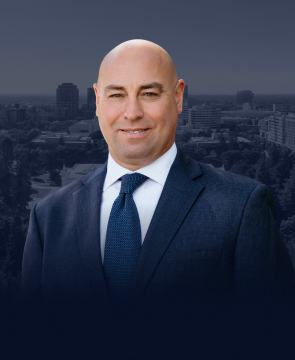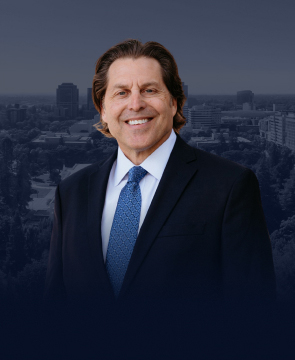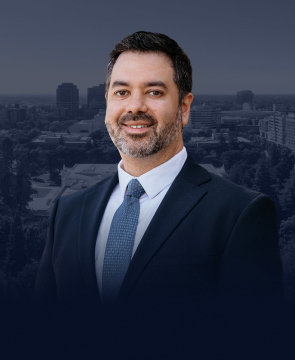If you suffer injuries in an unexpected accident due to another party’s negligence in California, you could be entitled to compensation from the at-fault party. However, personal injury claims take time, and you might need to pay certain medical expenses or property repair costs before your claim settles.
In some situations, your insurer might provide the funds you need now and seek reimbursement from the other party’s insurance provider later. A process called subrogation gives insurance companies the right to recoup their losses in this way. Learning how subrogation works in a California injury claim can help you understand what to expect and confidently navigate the claims process.
The experienced Sacramento personal injury attorneys at Demas Law Group, P.C., can help you understand your rights, including how subrogation might impact your injury case. Call us today or contact us online for a free consultation.
What is Subrogation?
Subrogation is a process that allows your insurer to pay for your injury-related expenses and then pursue a case against the at-fault party to recover the funds they gave you. The guiding principle behind subrogation claims is that your insurance provider should not bear the financial consequences of another party’s bad behavior.
For example, if you suffer injuries in a car accident due to another driver’s negligence, you would typically file a claim with the other motorist’s insurance company for medical bills, repairs, and other losses. But if you file a claim with your auto insurance company first, they can cover your losses now and file a subrogation claim later to recover the funds from the at-fault driver’s insurer. If the other party is uninsured, your insurer could seek reimbursement directly from them instead.
When Does Subrogation Apply?
Subrogation can apply in any situation where an insurer pays money to a party that is not primarily at fault for an accident, such as a car accident or dog bite victim. An insurance provider might file a subrogation claim to recover expenses related to the following:
- MedPay insurance – Medical payments coverage (MedPay) is an optional component in many auto insurance policies in California. If you have a MedPay policy, you can request payment for your medical bills in case of an accident, regardless of fault. But if another party is at fault, your insurer can seek compensation from the at-fault party afterward.
- Uninsured/underinsured motorist (UM/UIM) coverage – If your insurer pays for a claim against your UM/UIM policy, they can file a subrogation claim against the uninsured or underinsured driver later.
- Health insurance – Your health insurer could have the right to recover money from third-party subrogation if they pay out on a claim for your accident-related injuries.
Subrogation Statute of Limitations
California law states your insurance company must file a subrogation claim within three years of the accident that caused your injuries.
How Does Subrogation Affect My Personal Injury Compensation?
While your insurer does not take money directly from you when they file a subrogation claim, the process can still reduce the amount of money you ultimately get from your personal injury claim. However, three California laws protect your rights to compensation:
- California Civil Code § 3040 – California law limits the amount of money an insurance company can take from any compensation you receive for medical expenses. If an attorney represents you in your claim, the most your insurer can recover is one-third of the value of your compensation and one-half of your settlement if you did not hire a lawyer.
- California Made Whole Doctrine – This law stipulates the insurance company has the right to seek reimbursement only after the settlement has made you whole. This doctrine becomes important if the at-fault party lacks sufficient coverage to cover your losses. Note, however, that provisions in your insurance policy might overrule this doctrine. Consult with an experienced Sacramento personal injury attorney if you are unsure.
- California Common Fund Doctrine – This doctrine states that your insurance company must deduct some of the funds it recovers through subrogation to pay the claimant’s attorney for their work if the insurance company does not have its own legal representation.
Am I Involved in the Subrogation Process?
You are generally not involved in the subrogation process as an individual claimant. Subrogation usually occurs behind the scenes, with your insurance company demanding payment from the other party’s insurance company. But if any issues arise or your insurance company tries to contact you directly, a knowledgeable personal injury lawyer can help protect your settlement or verdict.
How We Can Help
The attorneys at Demas Law Group, P.C., have extensive experience handling subrogation matters and protecting the rights of injured individuals in California. If your insurer is filing a subrogation claim in your personal injury case, our seasoned lawyers can help you by:
- Negotiating with the insurance company to reduce the amount of the subrogation claim
- Representing you in court if the insurance company acts in bad faith
- Ensuring you receive fair compensation for your injuries and other losses
Speak with a Personal Injury Attorney Now
If you have questions or concerns about a subrogation claim in your personal injury case, the skilled attorneys at Demas Law Group, P.C., can help. Our firm has been protecting the rights of individuals and families in the Sacramento area for more than 25 years. Whether you suffered injuries in a traffic accident, a slip and fall, or an incident involving a defective product, we have what it takes to advocate for a full and fair outcome for you.
Call us today or contact us online for a free consultation to discuss your rights with a personal injury lawyer in Sacramento.








